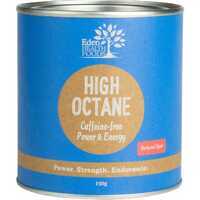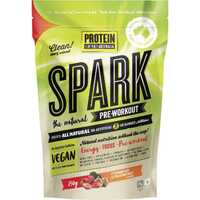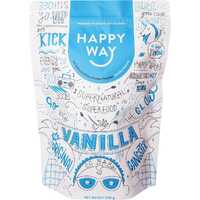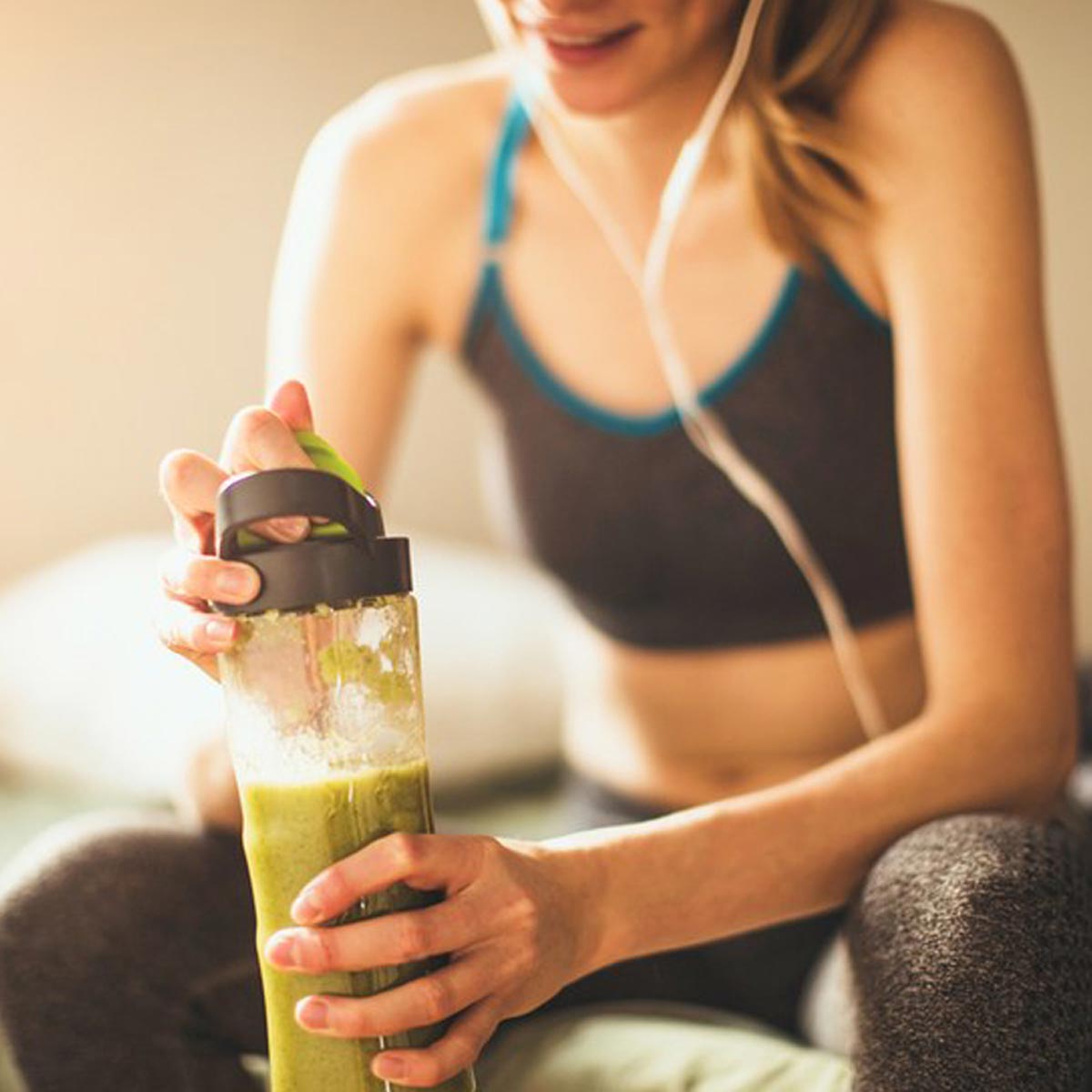When you perform physical exercise, it's important to maximise the impact of your hard work. Along with technique, workout frequency, and rest intervals, food and supplements have an important role to play. Sports nutrition is a broad field that describefs the intersection of fitness and food. From fuelling your body to preventing fatigue and managing recovery, nutrition plays a powerful role before, during, and after you exercise. Protein, carbohydrates, and healthy fats are all important, but you need to eat the right things at the right times to have a positive impact.
Let's break down fitness into three stages and three macronutrients to help you achieve your fitness goals.
Energising Your Body Before a Workout
Whether you want to pound the streets or hit the gym, you won't get far without energy. While motivation is also important, fitness routines demand physical energy reserves above all else. When you provide your body with sustenance before exercise, you're allowing yourself to perform at the best of your ability. From increased strength to enhanced stamina and mental clarity, what you eat before a workout impacts every part of your fitness regime.
Fuelling your body with food, drinks, and supplements is the best way to maximise your energy levels and improve your physical performance. All three macronutrients play a role, with proteins, carbohydrates, and fats helpful in different quantities at different times. A carbohydrate rich meal is meal is recommended 1-4 hours before most exercise programs, followed by small snacks during the immediate lead-up period. In addition, eating a small amount of protein can help with muscle mass gains.
Optimising Performance During a Workout
While pre-workout meals get most of the attention, what you consume during a workout is also important. Drinking water or sports drinks on the go helps to increase energy, prevent fatigue, and safeguard against dehydration, which is potentially very dangerous. Mid-workout drinks and snacks can help to optimise muscle performance and boost physical stamina, especially during challenging or prolonged workouts.
Whether you're going hard in the gym, playing football with mates, or trying to scale a mountain on your bike, a little fuel goes a long way when the body is under stress. Along with hydration, instant energy is the key to an effective workout snack. Energy bars and gels are tailor made for the job, with other great options including fruit, yogurt, and peanut butter. These foods provide an immediate energy release, which helps to maintain blood glucose levels, fuel muscles, and keep the brain ticking over.
Supporting Recovery After a Workout
If you want the occasional workout to turn into a positive lifestyle habit, you need to think long-term. Good nutrition helps you recovery properly – refuelling your tank, repairing your muscles, and helping your body to recuperate. With the right foods and supplements, sustainable exercise habits are much more likely. Along with winding down and stretching properly, eating the right foods while you rest can improve the outcome of your workouts.
While all foods can be useful post-workout, protein plays a central role in muscle growth and repair. Complex carbohydrates also aid the recovery process, and fats are needed for long-term energy stores. Fluids are also important after the fact, as they help your body to function at an optimal level. When you're recovering, consuming easily digested foods helps to promote faster nutrient absorption. While the timing of your post-workout meal is key, recent research suggests a wider window than first thought, at up to several hours.
The Powerful Role Played by Protein
Protein plays a vital role in the world of sports nutrition. Most commercial sports foods focus on protein, with this macronutrient involved with muscle growth and other essential bodily functions. Protein helps to fuel cell growth, support the immune system, and repair muscle and body tissue. It also helps to send and receive chemical messages, transport and store essential nutrients, and move oxygen around your body.
From protein shakes and bars to protein-rich powders and balls, there are many ways to get protein into your body. Protein is often consumed before exercise because it helps to increase muscle protein synthesis. With the ability to improve strength and enhance the anabolic response, it's no wonder you see people eating protein bars and drinking protein shakes before they get to work.
Consuming protein while you exercise is not much benefit, however, and it may even reduce the impact of your workout. Amino acid levels in your bloodstream need to rise before muscles can grow, with post-workou protein consumption more effective when your metabolism is higher. However, while protein doesn't provide an immediate energy release, it can act as a slow-release energy snack during a long session.
Protein is very important after a workout, as it helps your body to recover once the muscles have broken down. It increases the positive impacts of exercise and helps to reduce negative impacts by reducing the chance of muscle injuries. If you're serious about building muscle, many bodybuilders recommend 2.2 g of protein per kg of body weight per day. For everyone else, protein is supposed to make up 10-35% of your daily calories. Along with red meats and supplements, protein levels are high in many plant-based foods, including tofu, lentils, chickpeas, spirulina, and quinoa.
How Carbohydrates Energise Your Body
As the primary source of energy for your body, carbohydrates are essential physical activity. Along with putting energy in your tank, carbohydrates are heavily involved with immune system function and the breakdown of fatty acids. When it comes to physical performance, carbs help to maintain your blood glucose levels, fuel your muscles, and recover your energy stores. It works both ways, however, with excessive carbs increasing the likelihood of certain diseases, especially with physically inactive people.
After a meal, the body breaks down carbohydrates into glucose. This causes your blood sugar levels to increase, which provides you with an immediate energy lift. This is great before a workout, as it helps to maximise muscle glycogen and fuel muscle action. A few hours before you get active, slowly absorbed carbohydrates are recommended to promote a blunted rise in the blood glucose response.
Immediately before or even during exercise, the body can benefit from rapidly absorbed carbs. During a short workout, your body gets energy exclusively from glycogen stored within your muscle fibres. If you plan on working out for an hour or more, however, you can contribute to these stores with food. After a workout, carbs play an important role recovering glycogen stores, enhancing muscle protein, and helping with physical repair and rejuvenation.
While protein helps to build muscles and healthy fats provide long-term storage, carbohydrates are essential for sustaining and improving physical performance. While the general population is often told to limit their carbohydrate intake, high-carb meals can assist with high-intensity exercise routines. Complex carbs are best, with sugars, starches, and dietary fibre combined and made available to your body as glucose, fructose, lactose, and sucrose. These elements are available in a range of foods and sports-related supplements, including sports bars and gels. You'll also find carbs in plant-based products like grains, fruits, vegetables, and beans, and dairy foods like milk and cheese. In general, 45-65% of your daily calories should come from carbohydrates.
Why Healthy Fats Are Essential
Fats are an essential part of all cell membranes, and they help to insulate your organs and bones. Many people perform exercise to lose weight, but healthy fats can play a positive role in fitness regimes. Fats are especially important during endurance exercise, but they also play a role in between meals and during periods of limited food consumption. For optimal functionality, 20-35% of your daily alories should come from fat.
Not all fats are created equal, however, with unsaturated fats beneficial for the human body, saturated fats good and bad depending on their source and amount, and trans fat pretty much always bad. Unsaturated fats come from vegetable oils, avocados, ground flax seeds, nuts, seeds, and fatty fish. Saturated fats can be found in some red meats, along with many dairy products and snack foods. Trans fats can be found in many deep-fried and snack foods, and they're also found in some margarine.
While fats don't provide immediate energy or enhance performance, they play a vital role in other aspects of fitness. Fats take a long time to digest, so they're a great way to build up energy stores over time. Healthy fats are often added to sports supplements to help people access all three macronutrients in one go. Seeds and ground-down nuts can be a great addition to smoothies or energy balls, including things like chia, flax, and hemp. All of these examples are packed with healthy omega-3 fats, which help to reduce inflammation and give you the calories you need to keep moving.
When you have the right balance of macronutrients in your body, you're giving yourself the best chance to perform at an optimal level. Your body needs carbs before a workout to fuel your body, protein after to build and repair muscles, and healthy fats throughout the week to support your long-term energy stores. While food and supplements won't make all the difference, eating well is the best way to support active movement and positive lifestyle habits. Like always, balance is the key, with complex carbohydrates, lean protein, and healthy fats working together to keep you in tip-top shape.


 Certified Organic
Certified Organic Vegan Friendly
Vegan Friendly  Vegetarian
Vegetarian Organic Ingredients
Organic Ingredients Dairy Free
Dairy Free Gluten Free
Gluten Free Keto Friendly
Keto Friendly

































